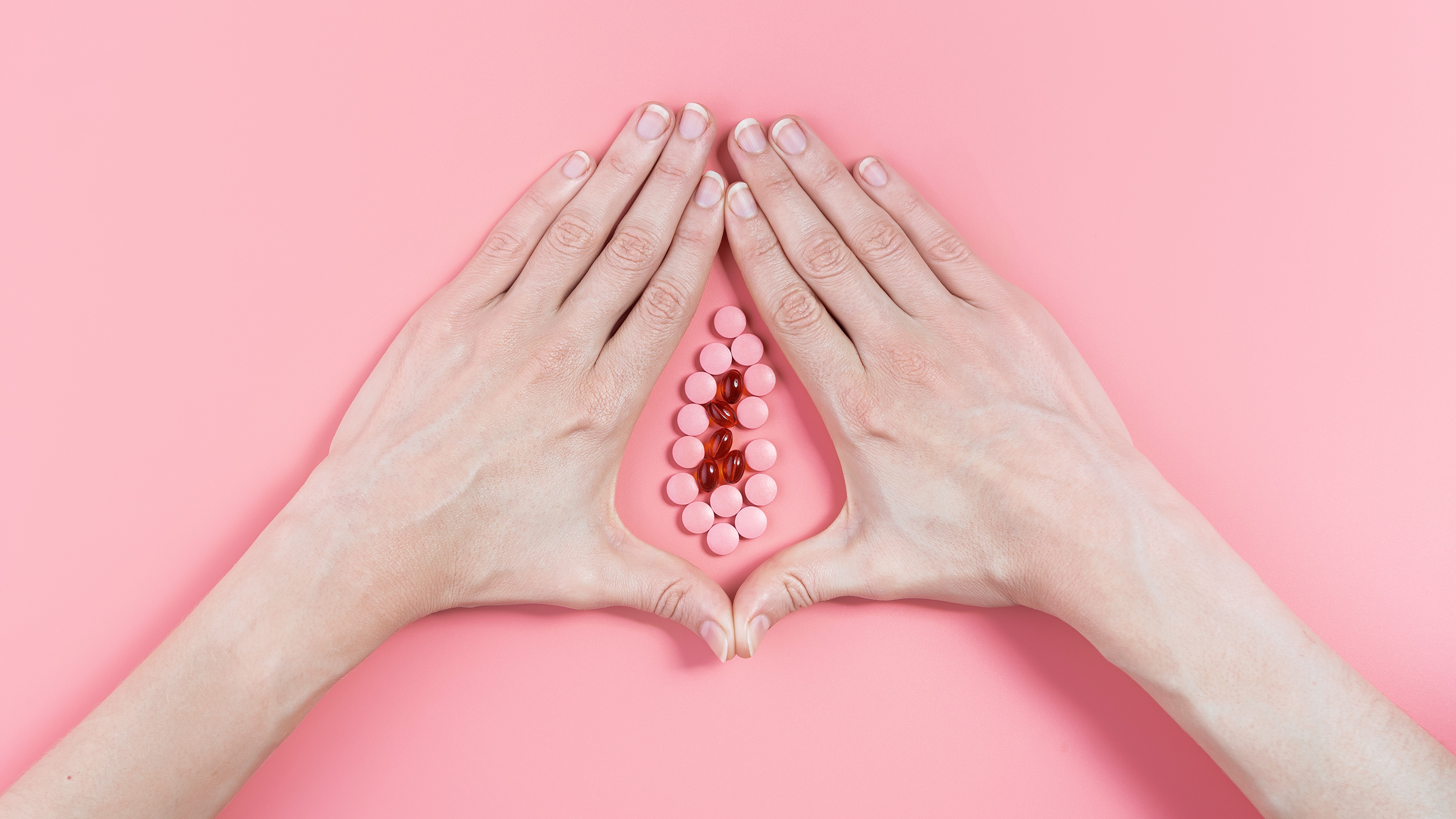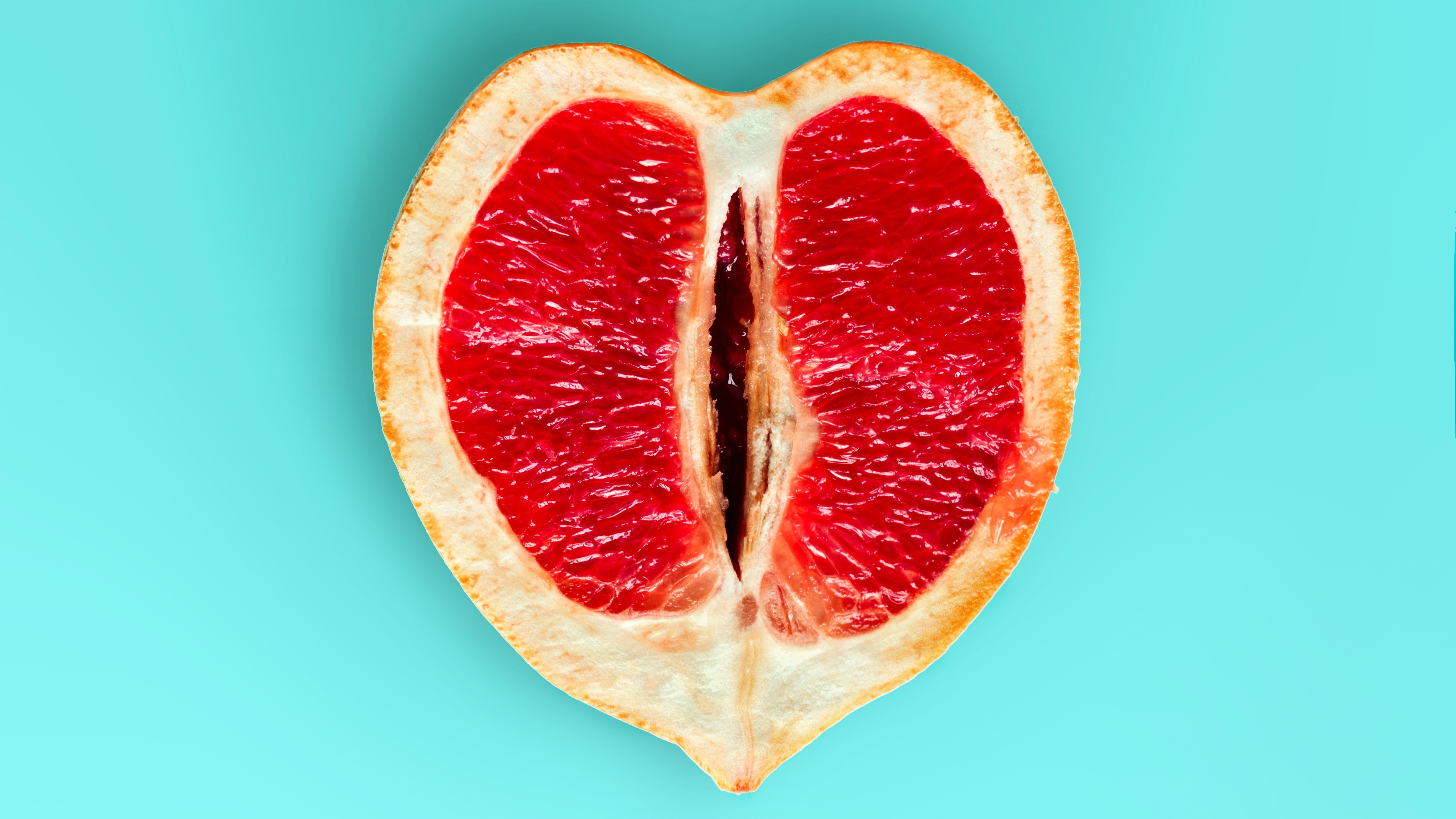Why do I have a sore vagina? 6 possible causes, and what to do about it
There are lots of reasons your vulva or vagina may be sore, according to the experts


Having a sore vagina and feeling discomfort can be a topic women struggle to talk about. Much like speaking openly about sex or menopause, many of us still shy away from having frank conversations when it comes to intimate issues.
In fact, research from The Eve Appeal—the UK's Gynaecological Cancer Research Charity—revealed that almost half of women (49%) said they would like to talk more about gynecological health. The same research also revealed women aged between 46 and 55 were the most likely to ignore gynaecological health symptoms in the hope they would go away (38%) or because they felt they weren't urgent enough to consult a doctor about (21%).
The truth is, there are lots of reasons why you might be suffering from a sore vagina. From changes in your menstrual cycle to common yeast infections—treatments could be as simple as doing kegel exercises or changing your shower gel and washing detergent, but sometimes you will need to see a medical professional for advice.
Here we break down six possible causes of your vulva and vaginal pain, what they mean, and what you can do to treat it, at home or with the support of your doctor. Not sure what the difference is between vagina pain and vulva pain? See our no-nonsense guide to normal vaginas to learn more.
Why is my vagina sore and how do I treat it?
There are a number of reasons you might be experiencing soreness in your vagina or vulva. The most common causes include:
- Thrush/Yeast infection
- Menopause
- Menstrual cycle
- Vaginitis
- UTIs
- Vaginismus

1. Thrush
"Vaginal thrush is caused by an overgrowth of candida, a yeast infection which commonly affects women. It can be associated with antibiotic use, pregnancy, diabetes, hormone changes and stress," says Dr Sally Moorcroft, a qualified doctor with 20 years of clinical experience, specializing in functional and integrative medicine, and director of Orchard Barn Lifestyle Ltd (Orchard Barn Health).
"Causing mild to severe itching and a vaginal discharge with a whitish, thick, curd-like appearance and a yeasty odor, thrush can be very unpleasant. Redness, inflammation and mild swelling may occur, and the tissue may become raw from itching," Dr Moorcroft adds.
Sign up for the woman&home newsletter
Sign up to our free daily email for the latest royal and entertainment news, interesting opinion, expert advice on styling and beauty trends, and no-nonsense guides to the health and wellness questions you want answered.
How to treat it:
There are a number of natural therapies which can act as an effective treatment. Dr Moorcroft suggests probiotics designed for the vaginal flora such as InvivoBio.Me Femme V, reducing sugar intake and using herbs with antifungal effects. Common natural treatments to ease symptoms include:
- Tea Tree—which can be found in moisturizers for the intimate area and hygiene sprays. Apply this topically to ease symptoms.
- Berberine—as a capsule or tincture is used internally.
- Thyme—as infusion or tincture is used internally.
- Calendula—comes in the form of a cream that is applied topically.
Other common over-the-counter treatments for thrush include oral capsules containing anti-fungal fluconazole, a pessary or cream containing anti-fungal agent Clotrimazole, such as the well-known Canesten Thrush Duo. See our guide to what causes thrush for more information on symptoms and treatments.
2. Menopause
It's important to remember menopause symptoms vary from woman to woman. However, the hormonal changes women experience at this time can alter the vagina's pH levels and out them at great risk of vaginal infection and irritation, says Miss Jeannie Yoon Consultant Obstetrician and Gynaecologist from The Lister Hospital.
"Hormone shifts make the tissues in your vagina become thin and dry and this dryness, in turn, can add friction during sex. Your vagina also stretches less, which can make it feel tight," adds Dr Shirin Lakhani, cosmetic doctor and intimate health expert at Elite Aesthetics
It's totally normal for women to experience vaginal atrophy and vaginal dryness during this time, too. Due to a reduction in estrogen levels, the vaginal walls can become thinner, less lubricated and inflamed, causing pain during sex or vaginal discomfort in general.
The treatment:
Depending on the cause of your soreness during menopause, there are a number of different treatment options out there. Speak to your doctor or gynecologist to pin down the cause and find the best treatment for you.
Over-the-counter lubrications can ease dryness and reduce pain during sex (see our guide to the best lubes for top recommendations). Hormone Replacement Therapy or hyaluronic acid injections can improve the uncomfortable symptoms of vaginal atrophy and offer more long-term relief.
3. Menstrual cycle
“There are a number of reasons why your vagina may feel sore before your period," reveals Dr Lakhani. The hormones responsible for period pain are known as prostaglandins. And while these tend to be the source of period cramps, they can also transfer the pain to your vagina or thighs. "Fluctuations of hormones like estrogen and progesterone can also cause vaginal pain by creating changes in vaginal pH that make it more sensitive," Dr Lakhani adds.
An increase in fluid retention before or during your period (hello water weight), can also cause the vaginal and vulva tissue to swell which can cause discomfort.
How to treat it:
Dr Lakhani says it can be tempting to turn to over-the-counter feminine washes and intimate creams to ease soreness, but warns "be cautious about choosing these products and if you do use them, make sure that they are not fragranced and designed for sensitive skin."
"My advice again would be that if you do have an issue it is important to see a doctor first before trying over-the-counter products to rule anything else."

4. Vaginitis
"Vaginitis is an inflammation of the vagina. It's triggered by anything that causes inflammation, such as infection, an irritant, or even too much intercourse. Vaginitis is often misdiagnosed as an infection; however, this is not always the case, as someone can have vaginitis without also having a vaginal infection," explains Yoon.
Menopause can also cause vaginitis. A drop in estrogen during this time can lead to inflammation. "Vaginitis does not occur in a specific part of the vagina; it can affect the whole vagina, from the vaginal opening at the vulva to deep inside," Yoon adds.
How to treat it:
Finding the root cause of the irritation is key to successfully treating it. Once you do this, you can decide the best course of action, whether that be swapping your go-to shower gel for a product that doesn't upset the natural pH level or changing your washing detergent.
"Emollient creams are moisturizing treatments that are frequently used to relieve itchy or dry skin and can be used to wash below with excellent results. They can also serve as a barrier, protecting the skin and retaining moisture," says Yoon, "they are the best solution to soothe and alleviate an itchy vagina without affecting the natural skin pH level."
If you've tried at-home treatments and not had any success, reach out to your doctor for medical advice and to rule out any underlying medical conditions.
5. UTIs
"Urinary Tract Infections such as cystitis can cause vaginal soreness, along with the characteristic stinging pain on passing urine, frequency, urgency and abdominal pain or pressure," Dr Moorcroft explains.
"It's important to ensure a urine infection is treated effectively as they can develop into kidney infections which are much more serious and have greater risks of complications. Pregnancy, sexual intercourse, dehydration, menopause and increasing age can all predispose a person to urine infections, and there is also a link with an imbalance in bacterial flora in the bladder," Dr Moorcroft adds.
Yoon points out that because the vagina and urethra are positioned close together, vaginal soreness can sometimes be mistaken for UTIs and vice versa. This is why it's important to speak to a medical professional (whether your doctor or pharmacist) and explain your full symptoms.
How to treat it:
A UTI can not be cured at home, and you'll need to see a medical professional to determine the best treatment for you. Depending on the infection, your doctor will prescribe antibiotics or other medication.
To prevent UTIs drink fluids regularly, Dr Moorcroft suggests. She also advises taking cranberry powder rather than cranberry juice, which is high in sugars, as well as Echinacea to boost immunity along with antimicrobial herbs such as Uvaursi and Buchu. Probiotics designed for the bladder flora such as InvivoBio. Me Femme UT can also be a great choice.
6. Vaginismus
Vaginismus is a condition that involves the involuntary spasm of the vaginal walls. This can cause pain and discomfort, particularly during sex. There are many different causes of vaginismus but it's often triggered by physical or emotional stressors due to medical conditions or trauma, Agatha Penney, a UK-based Psychosexual and Integrative Psychotherapist tells us.
It can cause stress, anxiety and fear of sex, as well as an uncomfortable tightening of the pelvic floor muscles.
How to treat it:
There are a number of treatments for vaginismus, and the right treatment for you will depend on the root cause. Common treatments include dilator therapy, psychosexual therapy, cognitive behavioral therapy, and pelvic floor therapy. If you're experiencing vaginismus, contact your doctor or organize an appointment with a sex therapist to discuss treatment options.
w&h thanks Dr Sally Moorcroft, director of Orchard Barn Lifestyle Ltd (Orchard Barn Health), Dr Shirin Lakhani, cosmetic doctor and intimate health expert at Elite Aesthetics, Miss Jeannie Yoon Consultant Obstetrician and Gynaecologist from The Lister Hospital and Agatha Penney, a UK-based Psychosexual and Integrative Psychotherapist for their time and expertise.
Miriam worked for woman&home for over five years and previously worked on the women's lifestyle magazines Woman and Woman's Own.
-
 Celebrities who overcame scandal and came back stronger than before - from Jane Fonda to Martha Stewart
Celebrities who overcame scandal and came back stronger than before - from Jane Fonda to Martha StewartScandals, controversies and fallouts can really harm a celebrity's reputation, but these stars proved there's power in putting in the work for a second shot
By Jack Slater Published
-
 Ranvir Singh’s denim midi dress is perfect for April date nights
Ranvir Singh’s denim midi dress is perfect for April date nightsYour favourite jeans will always be an easy outfit staple but denim dresses have the same comfort factor and more elegance.
By Emma Shacklock Published